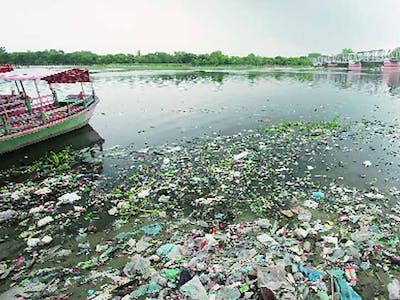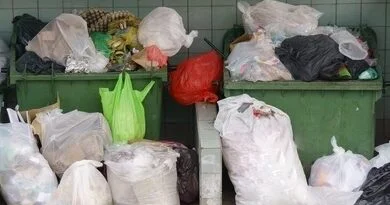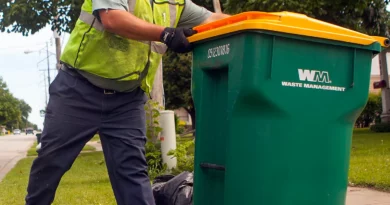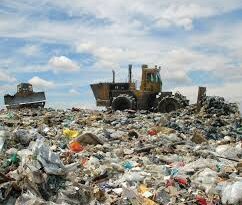Proper Ways Of Controlling Water Pollution
There’s need for our continuous effort in controlling water pollution since water pollution is a major environmental issue that poses a significant threat to the health of our planet and its inhabitants.
Water pollution occurs when contaminants enter natural water sources, such as rivers, lakes, and oceans, and alter the chemical, physical, and biological characteristics of the water. These contaminants can come from a variety of sources, including industrial discharges, agricultural runoff, sewage, and oil spills.
The consequences of water pollution are far-reaching and can have devastating effects on aquatic ecosystems and the organisms that depend on them, including humans.
Contaminants in the water can damage or kill aquatic plants and animals, disrupt food webs, and reduce the overall biodiversity of the ecosystem. In addition, water pollution can have serious impacts on human health, including the spread of waterborne diseases, such as cholera, typhoid, and dysentery.
Preventing water pollution requires a multi-faceted approach that involves both government and individual action. Governments can play a key role in regulating industrial and agricultural practices to prevent contamination of natural water sources.
For example, regulations can be put in place to limit the discharge of pollutants into waterways, or to require the use of best management practices in agriculture to reduce the amount of fertilizer and pesticides that run off into nearby streams and rivers.
Individuals can also take steps to prevent water pollution in their everyday lives. Simple actions like properly disposing of hazardous household waste, not pouring chemicals down the drain, and reducing the use of single-use plastics can all help to reduce the amount of pollutants that enter our waterways.
Additionally, supporting environmentally responsible businesses and advocating for stronger environmental regulations can help to reduce pollution and protect our water resources.
Water pollution is a serious environmental issue that requires both government and individual action to address. By implementing policies and practices that reduce the discharge of pollutants into our waterways and taking simple steps in our everyday lives to prevent pollution, we can protect the health and biodiversity of our aquatic ecosystems, and safeguard the health of our communities.
Proper Ways Of Controlling Water Pollution
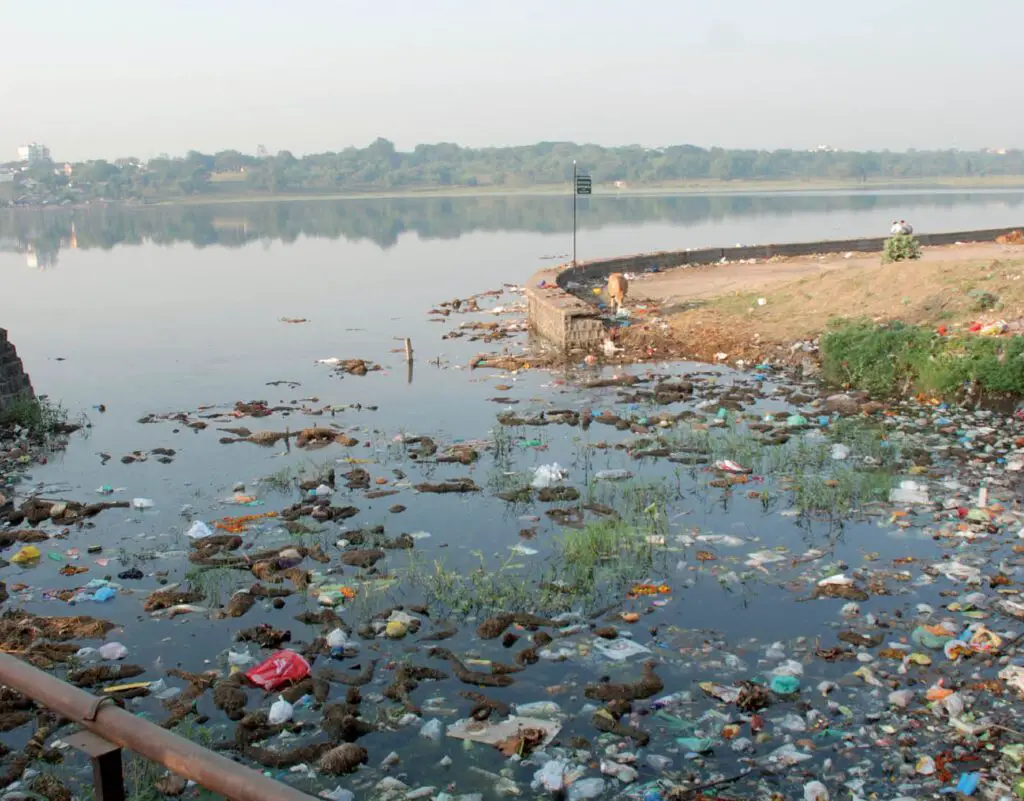
Water pollution is a significant global issue that has adverse impacts on human health, wildlife, and the environment. Polluted water can have severe consequences on aquatic ecosystems, such as the loss of biodiversity, reduced water quality, and increased susceptibility to disease outbreaks.
Fortunately, there are various ways of controlling water pollution, including effective waste management practices, proper manure management, and tipping fees for landfill disposal. Waste management Santee provides efficient and reliable garbage collection services to the residents and businesses of Santee, California.
One of the most crucial ways of controlling water pollution is through proper waste management practices. Municipalities and industrial facilities should invest in state-of-the-art waste management systems that prevent waste from contaminating water sources. Such systems may include waste sorting and recycling programs, composting facilities, and incinerators that dispose of waste safely.
Manure meaning organic matter, such as animal feces or decomposed plant material, that is used as a fertilizer to improve soil quality and plant growth. Proper manure management practices are essential in controlling water pollution. Manure from livestock farming can contain harmful bacteria, nutrients, and chemicals that can leach into groundwater and surface water bodies.
Read Also: Roles Of Environmental Management Services
Therefore, farmers should adopt best practices such as composting, proper storage, and application of manure on croplands during the appropriate season to minimize water pollution risks. The method of manufacture for this product involves several stages of precision machining and quality control checks to ensure the highest level of accuracy and consistency.
Moreover, manufacturing processes can also contribute significantly to water pollution. Industries that discharge wastewater into water bodies should adopt effective wastewater treatment systems to remove contaminants before discharge. They should also use non-toxic chemicals and proper waste disposal techniques to reduce the amount of pollution that ends up in water bodies.
Tipping fees for landfill disposal can also control water pollution. Landfills that are poorly managed or sited near water bodies can contaminate groundwater and surface water sources. Therefore, municipalities should impose tipping fees on landfills to incentivize the responsible management of waste. Such fees can encourage waste reduction and recycling, and discourage the use of landfills that pose a significant risk of water pollution.
Controlling water pollution requires a concerted effort from all stakeholders, including individuals, communities, businesses, and governments. Proper waste management practices, manure management, the use of non-toxic chemicals, and tipping fees for landfill disposal are just a few ways of controlling water pollution. With the right strategies and actions, we can reduce water pollution and protect our water resources for future generations.
Aside from the methods mentioned above, there are several other ways to control water pollution. One of these is the use of green infrastructure, such as rain gardens, bioswales, and green roofs. These methods help to absorb and filter stormwater runoff, which reduces the amount of pollutants entering water bodies.
Another effective way to control water pollution is through the implementation of regulations and policies. Governments can impose strict environmental regulations and standards on industries and businesses, which require them to limit their pollution levels and comply with specific guidelines. This approach can significantly reduce water pollution, especially in areas where industries and businesses discharge large amounts of pollutants into water bodies.
Individuals can play a crucial role in controlling water pollution through their daily activities. For example, reducing water usage in households and ensuring proper disposal of household hazardous waste can significantly reduce the amount of pollution that ends up in water bodies. Individuals can also participate in beach cleanups and other initiatives that help to remove pollutants from water sources.
Public awareness and education can help to control water pollution. Governments, non-governmental organizations, and educational institutions can organize campaigns to educate people about the harmful effects of water pollution and the various ways to prevent it. Such campaigns can encourage people to adopt environmentally friendly behaviors that reduce water pollution.
Read Also: Waste Management Services Camarillo Recycling inc. Offers
Controlling water pollution requires a multifaceted approach that involves the implementation of regulations, the use of green infrastructure, proper waste management practices, and individual responsibility. By adopting these methods and raising public awareness, we can significantly reduce water pollution and ensure the health of our water resources for generations to come.
Technology can also play a crucial role in controlling water pollution. For example, there are various technologies available for treating wastewater before it is discharged into water bodies. These technologies include membrane filtration, activated sludge systems, and reverse osmosis. Such technologies can effectively remove contaminants from wastewater and reduce the amount of pollution that enters water bodies.
Another technology that can help to control water pollution is the use of sensors and monitoring systems. These systems can detect changes in water quality and alert authorities to potential pollution events. Such systems can also be used to identify sources of pollution and take appropriate actions to mitigate them.
Sustainable farming practices can also help to control water pollution. Farmers can adopt methods such as conservation tillage, crop rotation, and cover cropping to reduce the amount of fertilizers and pesticides that enter water bodies. Additionally, farmers can use integrated pest management techniques, which involve using natural predators and other non-toxic methods to control pests.
International cooperation can also play a vital role in controlling water pollution. Water pollution is a global issue, and many of the pollutants that enter water bodies come from activities in other countries. Therefore, international agreements and partnerships can help to reduce water pollution globally.
For example, the United Nations has set up various initiatives and programs to address water pollution, such as the World Water Assessment Programme and the Global Programme of Action for the Protection of the Marine Environment from Land-based Activities.
Controlling water pollution requires a comprehensive approach that involves various methods, including the use of technology, sustainable farming practices, international cooperation, and public awareness. By adopting these methods, we can significantly reduce water pollution and ensure the sustainability of our water resources.
Read Also: Australian Shepherd Dogs: Description and Complete Care Guide
